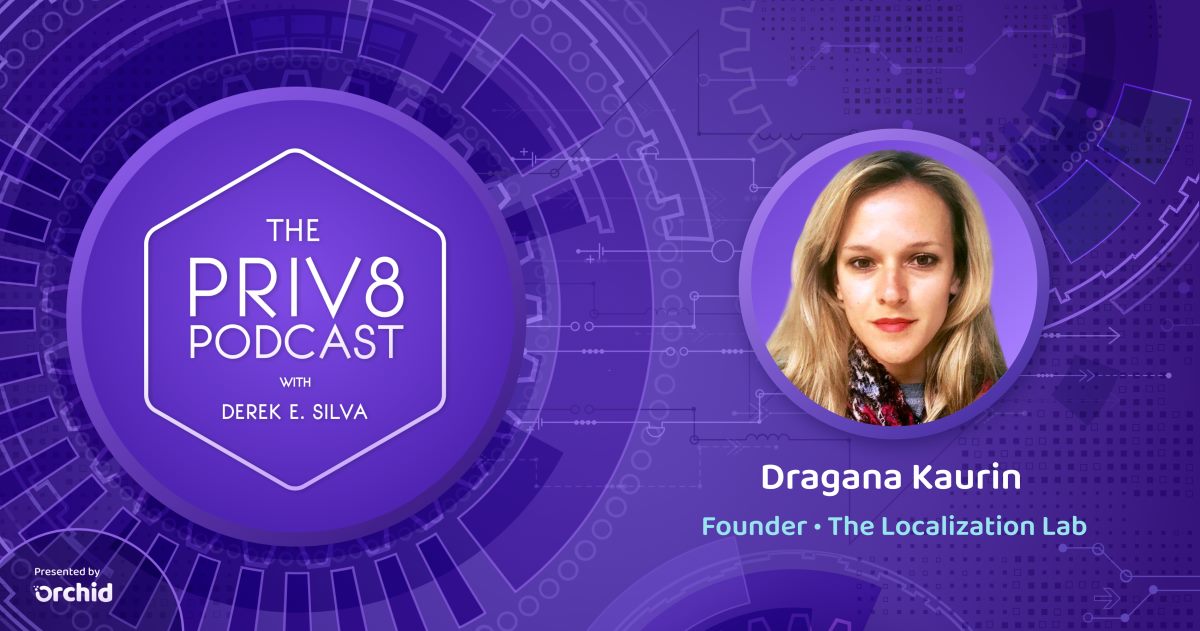
The Localization Lab's Dragana Kaurin on Building Tech for Marginalized Populations
Jun 1, 2021
"To be able to meet people's needs, you need to ask the question: 'what do you need?'" said Dragana Kaurin, human rights researcher and founder of The Localization Lab. She was speaking to Derek Silva, the host of Orchid's Priv8 podcast.
The question may seem simple, but it highlights an important problem in the way that technology is designed: "I've been in these rooms where people with a great amount of funding are saying, 'I want to find a way to use blockchain--I don't care how, just figure out a way to use it'," Dragana said.
"On paper, it sounds like a great idea, but that's not how innovation happens--you don't go backwards." Instead, developers need to "meet users on their own terms."
This is the work of The Localization Lab, which Dragana described as "an organization and a community." The Lab consists of more than 6,000 global contributors who support the translation and localization of Internet freedom tools, including a number of popular privacy platforms, such as the Tor browser and Signal's encrypted messaging app.
Marginalized populations are most vulnerable to surveillance and hacking
"[The Lab's] mission is to make technology accessible for the global South, which open markets don't usually design large tech products for...we want to build capacity locally so that people can co-design and develop technologies of their own," she said.
To achieve this goal, the Localization Lab focuses primarily on making FLOSS (free libre open source software) technology more accessible--specifically, supporting "tools that provide open and safe access to information online, to secure communication and human rights documentation tools."
"Most importantly, we make these available in 221 languages," particularly "underrepresented and indigenous languages," Dragana added. "We want to make sure that the most vulnerable people have access to these critical tools, and that they have access to participate in shaping them to meet universal usability and security needs."
After all, marginalized groups, including political and climate refugees, are often the most vulnerable to surveillance and hacking.
Focusing on universal design makes "imaginary problems" real for developers
The experience of these populations sheds important light on the intersection of human rights and Internet privacy. By communicating directly with individuals in marginalized communities, developers can understand their needs in ways that make them much more tangible.
For example, "People in remote areas really need these tools in real-world situations," she said. But "for a lot of designers and developers, these are still 'imaginary problems'--they've never lived in a place where the bandwidth is so low that text messages take 10-15 minutes to arrive."
Therefore, "when tools are being designed for a global audience," designers must consider the challenges of populations who have limited access to telecom infrastructure.
By encouraging and supporting the principles of universal design for developers of privacy-focused Internet tools and platforms, it is possible to provide marginalized groups with better options. "We need to apply universal design," Dragana said.
To learn more about how building Internet privacy tools for marginalized communities can improve human rights standards for all Internet users, check out Dragana's full discussion with Derek here. While you're at it, be sure to follow the Priv8 podcast on your favorite streaming service.
If you enjoyed this blog, subscribe here for privacy news, commentary, and product updates from Orchid.



